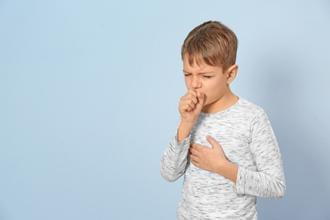Bringing Your Child in for Whooping Cough

- posted: Apr. 01, 2021
Pertussis, more commonly referred to as whooping cough, is a contagious bacterial infection of the lungs. The nickname comes from the “whooping” sound that occurs when a child breathes. While many people assume that whooping cough is an infection that no longer exists, it’s actually more common in the US than we’d like to admit. In fact, pediatricians have seen an increase in the number of whooping cough cases over the last couple of decades.
Whooping Cough May Look Like a Cold
You might brush off the early signs of whooping cough because they look an awful lot like the common cold. Older children and teens may develop congestion, mild fever, cough, or runny nose; however, within the first 1-2 weeks you will notice that the cough gets worse. In fact, your child may develop severe and sudden coughing fits.
Children and newborns are more likely to display severe symptoms. They may not have a whoop in their cough, but they may vomit or show severe fatigue after coughing. While anyone can develop whooping cough, infants are at particular risk for serious and life-threatening complications so it’s important to have your family vaccinated.
Vaccines Can Protect Against Whooping Cough
While newborns are too young to be vaccinated against whooping cough, you should make sure that the rest of your family is fully vaccinated. The DTaP vaccine will protect against whooping cough and will be administered at 2, 4, and 6 months old, again at 15 to 18 months, and again at 6 years for a total of five doses.
Turn to a Pediatrician Right Away
If you suspect that your child might have whooping cough, you must call your pediatrician right away. Children under 18 months old may require hospitalization so doctors can continuously monitor them, as children are more likely to stop breathing with whooping cough. Of course, coming in during the early stages of the infection is important as antibiotics are more effective at the very start of the illness.
Until the body clears whooping cough, some of the best ways to manage your child’s symptoms include,
- Resting as much as possible
- Staying hydrated
- Sticking to smaller meals to safeguard against cough-induced vomiting
- Making sure your family is up to date on their vaccinations
If you want to fully protect your child against many dangerous communicable diseases, one of the best ways is through vaccinations. Your child must be up to date on all of their vaccines. Talk with your pediatrician to find out when your child should get the whooping cough vaccine.

- posted: Apr. 01, 2021
Pertussis, more commonly referred to as whooping cough, is a contagious bacterial infection of the lungs. The nickname comes from the “whooping” sound that occurs when a child breathes. While many people assume that whooping cough is an infection that no longer exists, it’s actually more common in the US than we’d like to admit. In fact, pediatricians have seen an increase in the number of whooping cough cases over the last couple of decades.
Whooping Cough May Look Like a Cold
You might brush off the early signs of whooping cough because they look an awful lot like the common cold. Older children and teens may develop congestion, mild fever, cough, or runny nose; however, within the first 1-2 weeks you will notice that the cough gets worse. In fact, your child may develop severe and sudden coughing fits.
Children and newborns are more likely to display severe symptoms. They may not have a whoop in their cough, but they may vomit or show severe fatigue after coughing. While anyone can develop whooping cough, infants are at particular risk for serious and life-threatening complications so it’s important to have your family vaccinated.
Vaccines Can Protect Against Whooping Cough
While newborns are too young to be vaccinated against whooping cough, you should make sure that the rest of your family is fully vaccinated. The DTaP vaccine will protect against whooping cough and will be administered at 2, 4, and 6 months old, again at 15 to 18 months, and again at 6 years for a total of five doses.
Turn to a Pediatrician Right Away
If you suspect that your child might have whooping cough, you must call your pediatrician right away. Children under 18 months old may require hospitalization so doctors can continuously monitor them, as children are more likely to stop breathing with whooping cough. Of course, coming in during the early stages of the infection is important as antibiotics are more effective at the very start of the illness.
Until the body clears whooping cough, some of the best ways to manage your child’s symptoms include,
- Resting as much as possible
- Staying hydrated
- Sticking to smaller meals to safeguard against cough-induced vomiting
- Making sure your family is up to date on their vaccinations
If you want to fully protect your child against many dangerous communicable diseases, one of the best ways is through vaccinations. Your child must be up to date on all of their vaccines. Talk with your pediatrician to find out when your child should get the whooping cough vaccine.
Pediatric Group Associates
1625 Avenue Of The Cities,
Moline, IL 61265
Our Sick Clinic is currently open 8 am to 10:45 am Monday through Friday (this is NOT a walk-in clinic).
We recommend using our self-scheduling link , appointment request link, or calling us before arriving at the office to reserve your time slot.
The sick clinic is for acute problems like rashes, insect bites, poison ivy, sunburn and ear pain. We continue to take additional precautions to ensure the safety and health of our patients and staff through the use of our mobile registration and gathering information in advance of your appointment.
Thank you for your continued patience and support as we strive to meet the ongoing needs of our community in the safest possible manner.
Our Moline office is open from 8 am to 1 pm and 2 pm to 5 pm Monday through Friday. We have limited Saturday availability for acute sick symptoms only through our Facebook self-scheduling link which will be posted each Friday evening by 7 pm CST. We do not have regular office hours on Sunday, however there is a provider on-call in case of emergencies.

